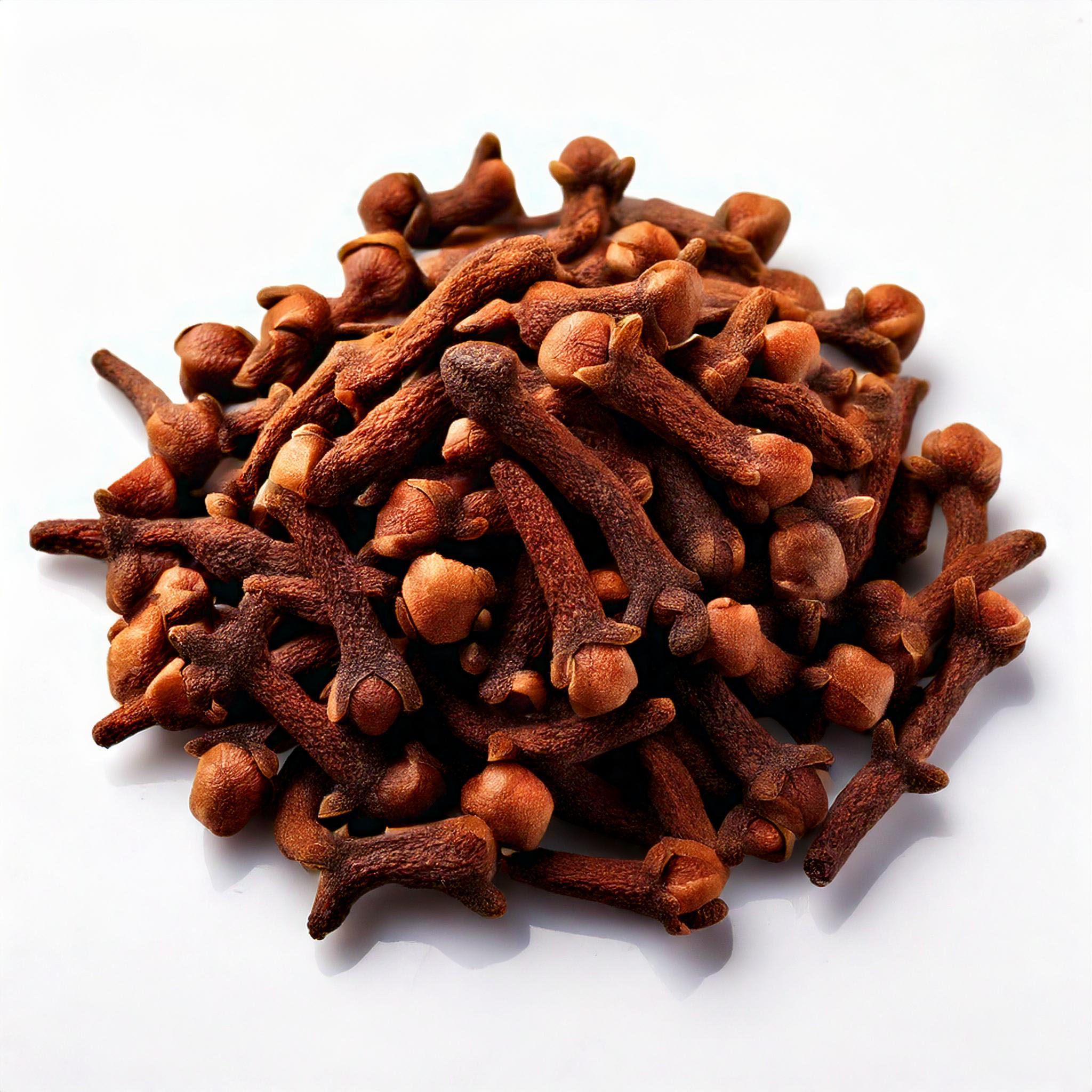Botanical Name: Syzygium aromaticu
Clove is a highly aromatic spice native to the Maluku Islands in Indonesia, commonly known as the Spice Islands. It is made from the dried flower buds of the clove tree and has been used for centuries in culinary, medicinal, and aromatic applications. Clove is one of the oldest known spices, historically traded by ancient civilizations and valued for its intense flavor, distinctive aroma, and numerous health benefits.
Clove is small, dark brown, and resemble small nails or pins, with a rounded top (the unopened flower bud) and a stem. They have a warm, pungent aroma and a strong, slightly bitter taste with sweet, spicy, and peppery notes. The flavor of clove is intense and slightly numbing due to their high concentration of eugenol, a natural compound responsible for the spice’s distinctive taste and medicinal properties.
Clove are widely used in both sweet and savory dishes across many cuisines around the world. In Indian, Middle Eastern, and African cuisines, clove are often used to flavor meat dishes, curries, rice, and spice blends like garam masala. Clove are commonly added whole to simmering stews or rice dishes, where they infuse the food with their rich, spicy flavor.
In Western cooking, clove is frequently used in baking, especially in spiced desserts like gingerbread, pumpkin pie, and fruitcakes. Ground clove is also a key ingredient in spice mixes such as pumpkin spice and apple pie spice, adding warmth and depth to both baked goods and beverages like mulled wine and spiced cider.
Clove is often used whole or ground in savory dishes as well. In European cuisine, they are commonly used to flavor sauces, marinades, and pickled vegetables. They are also a key component in béchamel sauce and studded hams, where clove is inserted into the meat to impart flavor.

